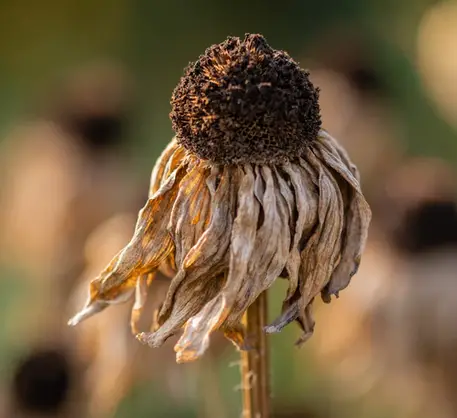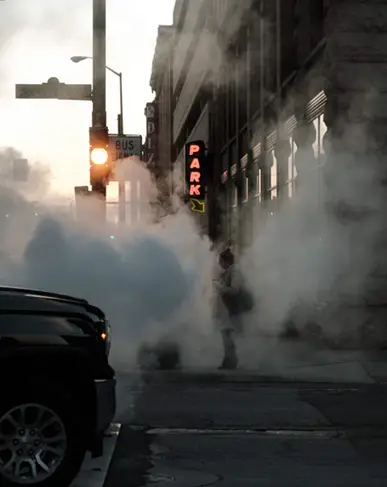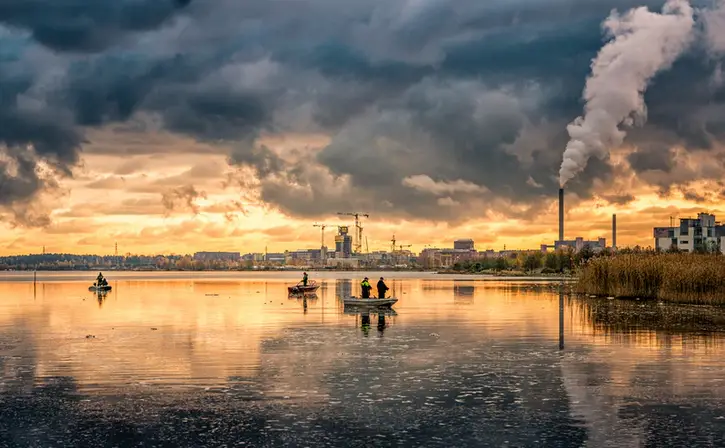 Did you know that there are bad effects of pollution on humans, animals, plants, and the environment? In this article, we list them down, so that you’ll know how to contradict them. After all, pollution is everywhere and has been a global problem ever since the industrial age.
Did you know that there are bad effects of pollution on humans, animals, plants, and the environment? In this article, we list them down, so that you’ll know how to contradict them. After all, pollution is everywhere and has been a global problem ever since the industrial age.
Tons of smog, dust, dirt, and the like are all over the place, not just outside your home but also in your indoor space. Therefore, it can be alarming, as pollution does have a certain effect on the health of all living things, including you and your dog – and even your succulent plant collection.

How does air pollution affect plant life?
There are many terrible ways that air pollution can do harm to plants and veggies:
- Your soil becomes less healthy. Without healthy soil, your plant will not grow properly. The soil is where your plant will get nutrients, so it makes sense to have a soil that has mostly good nutrients and not bad ones. The problem with air pollution is that it can carry all the smog and dust even to the ground, which could contaminate your garden or plant soil. This, in turn, can ruin your plant’s growth program.
- The leaves get dry. If you see visible damage to your plants, it may not be that ideal to take them outside or even plant them, since they could actually get dry from the excess air pollution. Depending on what air pollution you have and how much it gets worse, your plant leaves could suffer even more damage. Another possible cause is if mold and mildew grow faster, which is caused by air pollution as well.
- It may not bear good fruit (or vegetable). For those who are raising a garden of fruits, vegetables, and anything edible, it can be bad news for them if they live in a highly polluted area. This is why most farms are set far away from the city because plants definitely need fresh air. If your plants breathe toxic air then they will eventually yield toxic fruits and crops, which you definitely don’t want to eat up!
- The flowers may not bloom properly. Along with the change in the quality of their fruits or vegetables, the plant may also not bloom flowers as scheduled. Or, they could have a decrease in quality. This isn’t very good news when you’re one of those landscapers or those who sell flowers for a living.
- The plant could die easily. Due to the reduction of photosynthesis, air pollution could possibly kill off a plant. This is why most cities aren’t really an ideal place to plant anything since air pollution mostly takes and eats up all the space for the plants to breathe. After all, plants are living beings like us.
How does air pollution affect trees?
A tree can have different reactions to air pollution. Generally, trees are meant to absorb the bad pollutants from the air, since this is what they do – exchanging oxygen for carbon dioxide. However, too much pollution that is absorbed could also be bad for them.
Trees that are often exposed to polluted areas could receive more damage than those that live in rural areas. For example, their photosynthesis program could be disrupted since the pollutants can destroy their tissue. This translates to “I can’t breathe properly” for the tree.
You can see when a tree isn’t breathing properly by looking at the leaves. Most maple leaves could turn purple if they have excessive ozone damage or exposure. The same is true for black cherry and other similar trees. This discoloration usually comes from ozone, but there are other pollutants from the air that affects trees, such as:
- natural gas
- fossil fuels
- coal
- aluminum and phosphate fertilizers
- oil refineries
- methane
- livestock waste
- steel manufacturers
- paints and solvents

How does air pollution affect humans?
Air pollution can affect humans in the following:
- Their homes become more allergy-prone. The indoor air gets affected, which is why most people complain about things like “my house never smells fresh” or “I can’t stop my allergies at all”.
- It’s more difficult to breathe indoors. In fact, if your room or basement isn’t a place of fresh air, this can be one of the downsides of air pollution, as we mentioned in how to ventilate a basement.
- Your lifespan shortens. More people get diagnosed with respiratory problems each year just by living in a highly polluted area.

What are the five effects of air pollution on humans?
As we mentioned in our previous articles about the effects of air pollution in points, humans are greatly affected by air pollution in the following ways:
- Health problems. Respiratory problems, asthma, lung cancer – you name it. Air pollution has a number of adverse effects on human health, and an unhealthy set of lungs is one of them.
- Increased fatalities. More and more people die each year due to lung and respiratory problems. These people don’t even smoke, but they just inevitably breathe factory smoke.
- Less productivity. People who get sick more due to respiratory problems can decrease the manpower and productivity of any company. This is a common cause for those working in urban areas.
- Shorter life span. The reason why fewer people get to 100 years old is due to the toxic chemicals that are present in our current air.
- Decreased quality of life. The quality of life that we get can sometimes be based on our air quality since if we don’t treat it properly, it can destroy our health, our plants, cause our animals to get sick, and shorten our lifespan.
Conclusion
To conclude, air pollution is something worse than what we usually think and hear from the news. It doesn’t only affect us humans, but it could also destroy our plants, trees, and even cause our animals to not breathe properly and have respiratory problems.
Therefore, it’s important to become more environmentally-conscious and get the pollution out of our house. Easy solutions such as air purifiers can help decrease air pollution at home.



